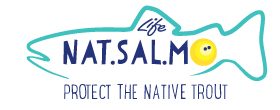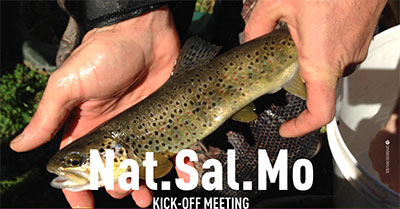The first meeting of the Nat.Sal.Mo project – Recovery of Salmo macrostigma: Application of innovative techniques and participatory governance tools in rivers of Molise , funded under the European LIFE+ program was held.
The University of Molise – with the Agriculture, Environment and Food Department – as well as being the promoter and leader of the project, also plays the role of coordinator of the various institutional and scientific partners, national and international: Mediterranean Trout Research Group, Molise Region, Municipalities of Oratino and Rocchetta in Volturno, Legambiente Associazione Onlus, Studiogiuliano Srl, and the Universities of Romania, Agricultural Sciences and Veterinary Medicine University of Iasi “Ion Ionescu de la Brad”, and “Lucian Blaga” University of Sibiu.
The project – coordinated by Prof. Nicolaia Iaffaldano – aims to guarantee the recovery and conservation of the trout Salmo macrostigma, endemic species of the Mediterranean area currently threatened by introgressive hybridization with Atlantic trout strains in the Biferno and Volturno river basins (Molise region – southern Italy).
The project process began: the first stage, the opening meeting held last week at the Agriculture, Environment and Food Department with the participation of all partners, during which the intervention strategies and the various lines of analysis and studies that will see researchers engaged in operating, especially in the Biferno and Volturno rivers, through the use of innovative cryopreservation techniques.
A project phase that will involve everyone for the next 4 and a half years and which will also be characterized by a specific overall fee: in fact, an instrument of participatory governance will be fielded, the so-called “river contracts” which provide for the participation of institutional and socio-economic actors on the one hand, and the territorial fabric and the population concerned on the other.
The transferability of good practices, defined and implemented, represents the ultimate goal, projecting and adopting them in similar environmental and ecosystem contexts, both in Italy and in other EU Member States.



